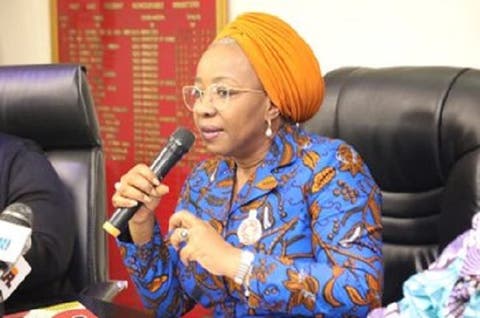Olusola Bello
The Federal Government has said financing the clean energy transition will require investments of up to $410 billion above business as usual spend.
This breaks down to $162 billion net spend on generation capacity, $135 billion on transmission and distribution infrastructure,$79 billion on buildings, $21 billion on industry and $12 billion on transport.
The biggest capex investments are in power and infrastructure, including transmission and distribution, which are the cornerstone of an electrified economy, supporting emissions reduction in transport and industry. Power costs will be driven by solar PV, storage and the incorporation of hydrogen.
This was by
The Minister of State for Environment, Sharon Ikeazor, disclosed at the 19th Annual Aret Adams Memoral Lecture Series 2022, with the theme: Global Energy Transition Agenda: Nigeria’s preparedness, held in Lagos.
She said in making the commitment to net zero by 2060 at COP26 President Muhammadu Buhari made it clear that natural gas has a role to play in Nigeria’s energy transition.
“With proven gas deposits of 206.53 trillion cubic feet, Nigeria has the largest natural gas reserves in Africa. One key feature of the Energy Transition Plan (The Net Zero 2060 pathway) is a clear and important role for gas through to 2030 consistent with Nigeria’s Decade of Gas.”
The minister stated that to rely on gas as energy transition fuel requires infrastructure procurements and investments. This means that Nigeria requires significant funds to build infrastructure for generating, transmitting, and distributing energy to reduce over reliance on fossil fuels.
She stated that although renewable energy costs have fallen dramatically in the past several years, however, renewable energy projects are not built at a rate that is commensurate to cut down greenhouse gas emissions in line with the Paris Agreement, especially in developing countries where the cost of financing projects can be many times more expensive than in the developed countries.
“As one of the goals of COP26 involves financing, Nigeria would be able to attract funds provided to developing countries for investments in renewable energy”.
“.In the energy production and manufacturing sectors, realising our net-zero target would be reliant on carbon capture and storage (CCS) as a technology for mitigating the effect of anthropogenic greenhouse gas emissions. This is because achieving CCS is critical to the success of other key elements in the decarbonisation system.”
“Of all the sedimentary basins in Nigeria, the Niger Delta basin is potentially the most suitable for geological carbon dioxide storage due to the availability of depleted oil and gas fields. While oil exploration and production in the Niger Delta has caused the emission of significant amounts of greenhouse gas in the atmosphere, perhaps government would have more stringent measures in place so that operators in the industry can deploy decarbonisation technologies like CCS.”
She disclosed the International Finance Corporation and the World Bank is in talks with Government to develop a domestic market for carbon capture, utilization and storage for industrial emissions and this would help accelerate our energy transition.
“As part of our efforts to conserve and restore forests, we are taking positive steps in preserving forested areas under the UN-backed Reducing Emissions from Deforestation and Forest Degradation (REDD+) system. Thankfully, the Nigerian Climate Change Act provides for the establishment of the REDD+ registry as part of nature-based solutions to climate change.”
“With the REDD+ strategy in place, not only would our rainforests be worth more alive than dead, but collectively, we would overcome the financial incentives to destroy and damage forests for timber, livestock grazing and agriculture. This is in addition to measuring and pricing the carbon captured and stored in our forests using the best method for preserving this critical resource.”

